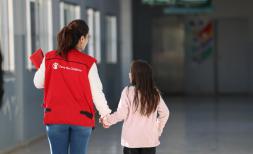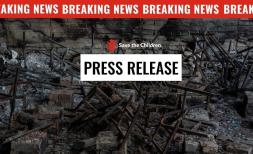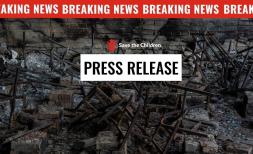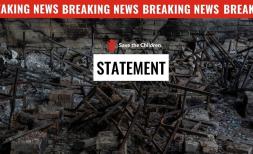Twenty aid agencies in Myanmar call for full access to conflict-affected Rakhine and Chin States in the wake of increased violence
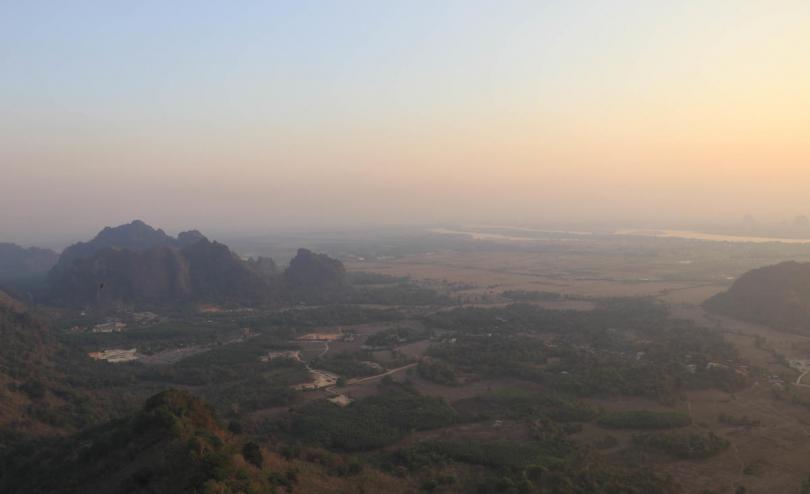
A recent upsurge in violence in parts of Myanmar is likely to cause more hunger, displacement and the loss of livelihoods among communities, while making it impossible for many children to attend school, twenty aid agencies in Myanmar warn.
Local sources report that many people are fleeing their homes, while others are trapped and unable to leave. The twenty organisations working in the country are deeply concerned by reports of burning villages, indiscriminate fire, and the arbitrary detention of civilians.
Together they released the following statement:
As international humanitarian organisations working with communities throughout Rakhine State, we express deep concern for all those affected by the upsurge in fighting between the Arakan Army (AA) and the Myanmar Military in northern Rakhine State. This area in and around the Kyauk Tan village tract is home to more than 10,000 people and local sources report many are fleeing from their homes while others are trapped and unable to leave. We are deeply concerned by reports of burning villages, indiscriminate fire, and the arbitrary detention of civilians.
We urge all actors to protect civilians, exercise restraint and prevent the further escalation of conflict. Parties to the conflict must ensure full adherence to international humanitarian law and the protection of civilians. The Government must uphold the human rights of all civilians within Rakhine and Chin States.
We see first-hand the impact months of escalating fighting in Rakhine and Chin States is having on populations living in these areas. These latest operations will likely cause greater hunger, displacement and human suffering at a time when populations are dealing with COVID-19 and heavy rains from the monsoon season. Many children are at risk due to fighting and unable to attend school. Further, given that many farmers are now displaced during planting season, the recent escalation of fighting is further likely to negatively impact the long-term food security and livelihoods of impacted communities. Humanitarian access is already extremely limited and assistance is simply not able to reach many of the most impacted communities.
We call for unfettered access for humanitarian actors and their partners so that they can independently assess needs and provide comprehensive assistance and protection to affected communities. Unfettered access to all areas of Rakhine and Chin States for independent third parties, including journalists and human rights observers, should also be granted as soon as possible.
Many INGOs are working in Rakhine and Chin, often in partnership with national and local organizations, to provide humanitarian relief and development assistance and deliver aid based only on need. We abide by the regulations administered by the Government of Myanmar in relation to the provision of assistance, and coordinate with Union and State Governments as well as civil society and local communities most affected by the conflict. We adhere to humanitarian principles of independence, neutrality and impartiality.
We reiterate our earlier message to all parties to conflict to heed the call by the UN Secretary-General for a global ceasefire, extending to all parts of Myanmar without exceptions, to enable the protection of civilians and support efforts to prevent and respond to the COVID-19 pandemic, which continues to evolve in Myanmar.
To support Save the Children’s global COVID-19 emergency appeal, click here.
For questions, please reach out to:
Rik Goverde (London), rik.goverde@savethechildren.org
During out of office hours: media@savethechildren.org.uk / +44 7831 650409
